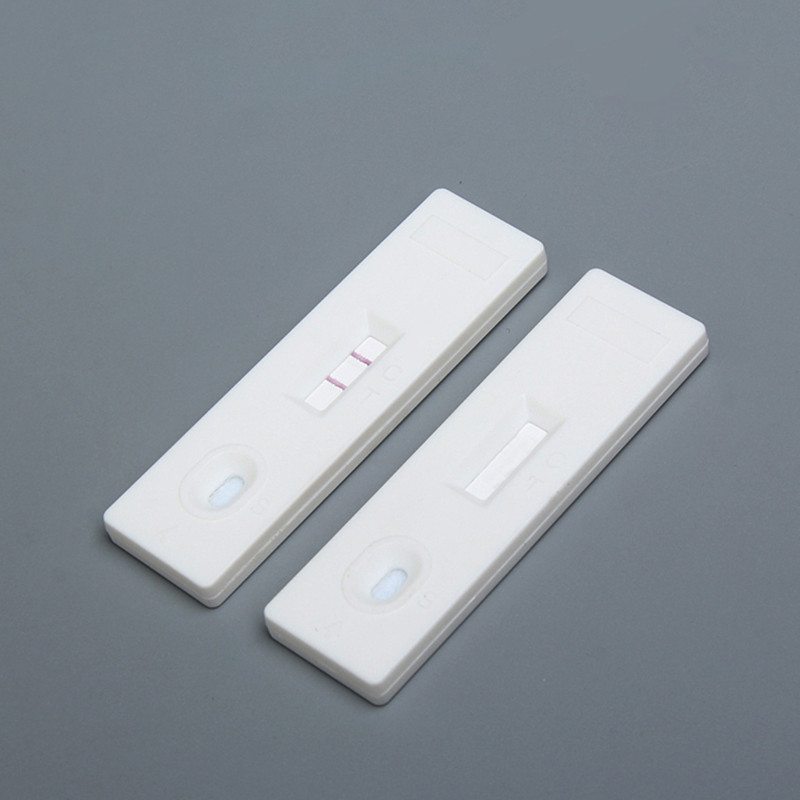Oct . 12, 2024 06:24 Back to list
Rapid Test Kit for Plasmodium falciparum Malaria Detection in Blood Samples
The Importance of Malaria Pf Blood Rapid Test Kits in Disease Management
Malaria remains one of the most significant public health challenges worldwide, particularly in tropical and subtropical regions. Many countries continue to grapple with the burden of malaria, caused by Plasmodium falciparum (Pf), which is the most life-threatening species. Early diagnosis and prompt treatment are crucial in controlling this disease and reducing mortality rates. One of the most effective tools in facilitating this is the Malaria Pf blood rapid test kit.
Understanding Malaria and Its Risks
Malaria is transmitted to humans through the bite of infected female Anopheles mosquitoes. The disease can lead to severe illness and even death if left untreated. Symptoms typically include fever, chills, sweating, headache, nausea, and vomiting. Because these symptoms can mimic other diseases, timely and accurate diagnosis is essential.
What is a Malaria Pf Blood Rapid Test Kit?
A Malaria Pf blood rapid test kit is a diagnostic tool that allows for the quick and easy detection of Plasmodium falciparum in a patient's blood sample. Unlike traditional laboratory tests that may take hours or even days to yield results, rapid test kits provide results in just 15 to 20 minutes. This is particularly beneficial in remote and resource-limited settings where access to sophisticated laboratory facilities may be limited.
How Does It Work?
The test kit generally involves a simple procedure where a small drop of blood is obtained from a finger prick. The blood is then applied to a test strip containing specific antibodies that react to the presence of Pf antigens. The appearance of distinct lines on the test strip indicates a positive or negative result. This process does not require any specialized training and can be performed by healthcare workers or even community health volunteers, making it incredibly accessible.
Advantages of Rapid Test Kits
1. Speed The most significant advantage of rapid test kits is the time-saving aspect. Quick diagnosis allows healthcare providers to initiate treatment sooner, which is critical for effectively managing the disease and preventing complications.
malaria pf blood rapid test kit

2. Ease of Use The simplicity of the test makes it suitable for use in various settings, including rural clinics and during outreach programs. This broadened access means that more patients can receive timely diagnoses.
3. Cost-Effectiveness Rapid test kits are generally affordable compared to laboratory tests. They do not require expensive equipment or extensive training, making them an economically viable option for many health systems, especially in low-resource settings.
4. Enhanced Surveillance The use of rapid test kits can improve disease surveillance and data collection efforts. With more rapid testing happening at community levels, public health officials can gather more data on malaria prevalence, leading to better-informed strategies for control and prevention.
5. Integration into Health Programs Rapid test kits can be integrated into existing health programs, including maternal and child health initiatives, preventive care, and emergency response teams. This flexibility enhances the overall effectiveness of health intervention strategies.
Challenges and Considerations
While the benefits are substantial, there are challenges associated with the use of malaria rapid test kits. For instance, false positives and false negatives can occur, necessitating confirmatory testing in certain cases. Moreover, the quality of kits can vary significantly, underscoring the importance of using products that meet international quality standards.
Furthermore, health education is essential to ensure that communities understand the importance of testing and the implications of the results, whether negative or positive. Comprehensive training for healthcare workers on interpreting test results and administering appropriate treatments based on those results is also crucial.
Conclusion
The Malaria Pf blood rapid test kit is a game-changer in the battle against malaria. By facilitating quick and accurate diagnoses, these kits enhance disease management and treatment outcomes, especially in areas where healthcare resources are limited. As global health initiatives continue to fight malaria, integrating these rapid test kits into healthcare systems can significantly contribute to reducing the incidence and impact of this deadly disease. Continued investment in research, training, and health infrastructure will be essential to realize the full potential of these diagnostic tools and to strengthen public health responses worldwide.
-
Dengue NS1 Rapid Diagnostic Test Kit
NewsMar.07,2025
-
Dengue NS1 Rapid Diagnostic Test Kit
NewsMar.07,2025
-
Dengue NS1 Rapid Diagnostic Test Kit
NewsMar.07,2025
-
Transferrin Rapid Test Cassette Tumor Marker TF Card
NewsMar.07,2025
-
Malaria Pf Pan Rapid Diagnostic Test Kit
NewsMar.07,2025
-
malaria pf / pan ag rapid test
NewsMar.07,2025

